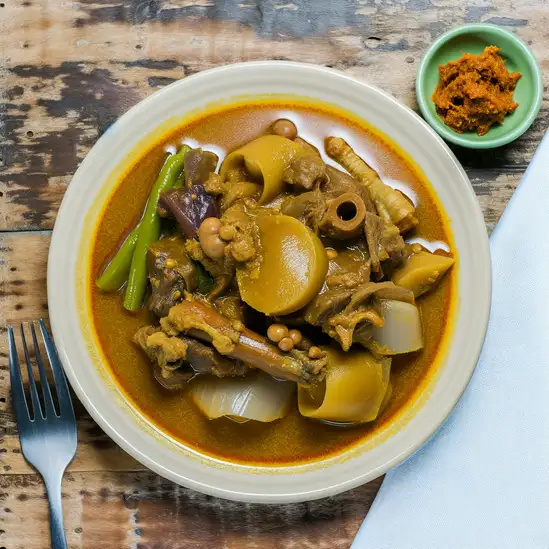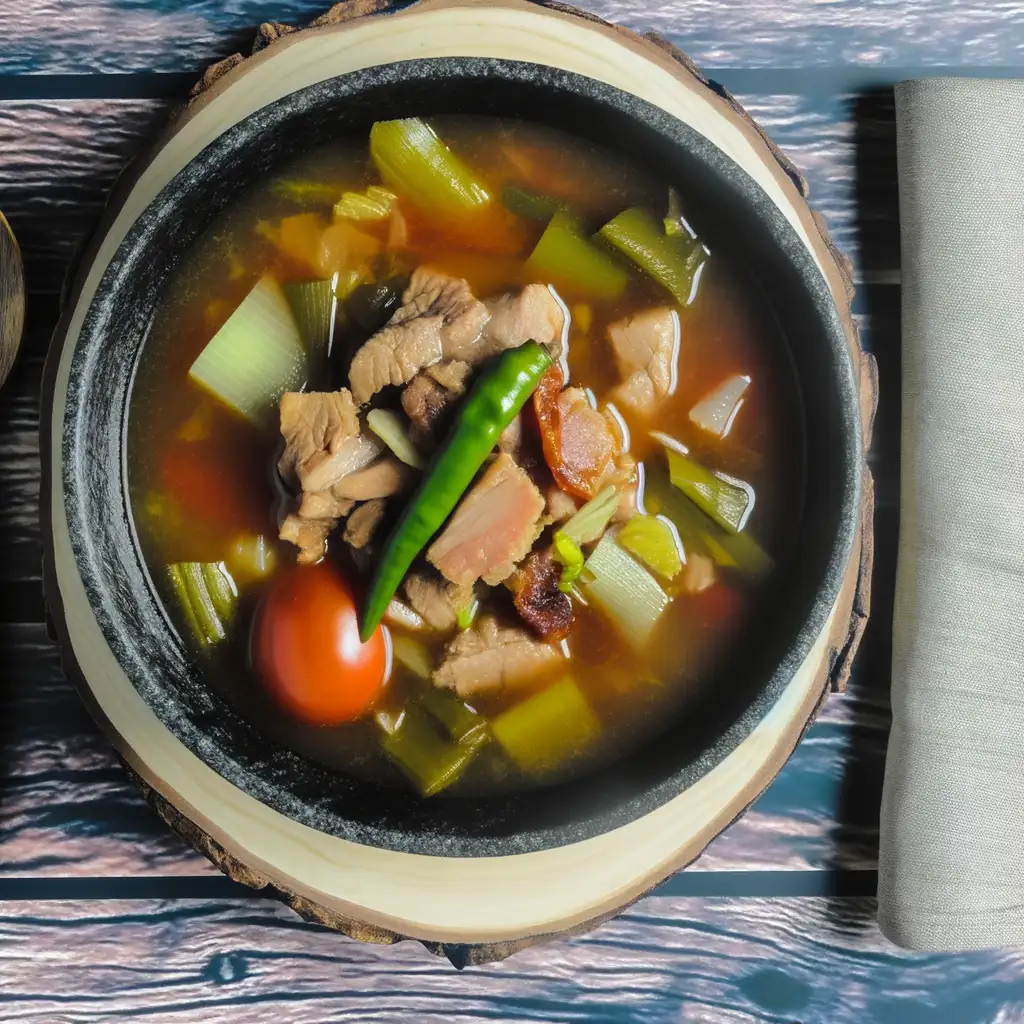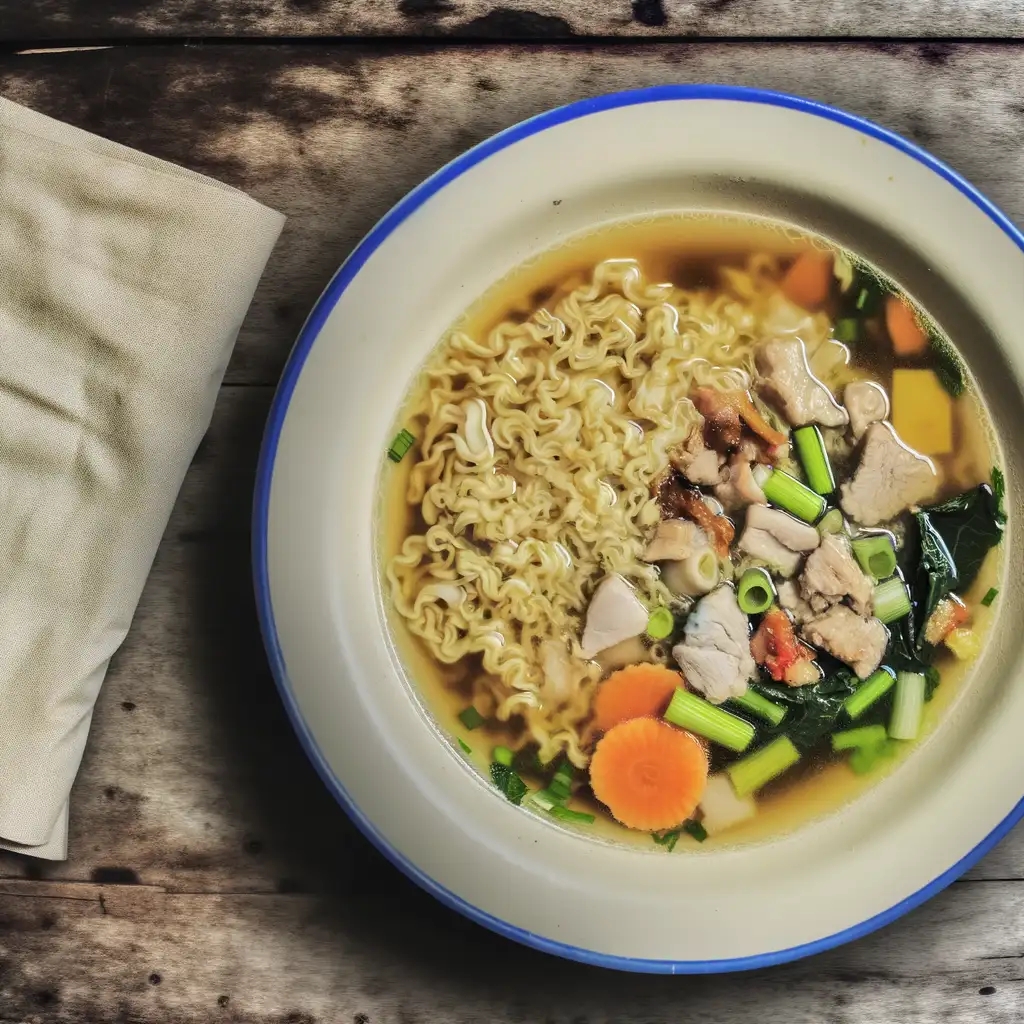


If you ever find yourself craving a place where time seems to slow down and nature’s beauty takes center stage,Basco in the Philippines is where you want to be. The moment you step into this charming town on Batan Island,there’s a gentle breeze carrying the salty scent of the sea mixed with the earthy aroma of lush greenery. It’s a place where the sky feels impossibly wide,and the mornings greet you with soft,golden light spilling over rolling hills and rugged coastlines. Walking through Basco,you’ll notice the warm smiles of locals who carry a quiet pride in their culture and history. The town’s character is a blend of indigenous Ivatan traditions and subtle Spanish influences,visible in the stone houses with their thick walls designed to withstand the fierce winds. The rhythm of daily life here is unhurried—fishermen casting their nets,children laughing as they run along the shore,and vendors selling fresh seafood and local delicacies that burst with flavor,like the salty,chewy vuyavuy shellfish or the sweet,sticky suman rice cakes. What really makes Basco unforgettable is its connection to the wild outdoors. From the iconic Basco Lighthouse perched on a cliff,you can watch waves crash dramatically against volcanic rock formations,while the nearby rolling hills invite you to hike and discover panoramic views that feel like they belong to another world. It’s a place that invites you to breathe deeply,listen closely,and soak in a peaceful,authentic slice of island life.
The information on this page is currently being reviewed by Tripkliq and should be used as a guide only
Eng word: Hello
Eng pronunciation: Dee-yos Ma-mah-jes
Local language: Dios Mamajes
Eng word: Goodbye
Eng pronunciation: Dee-yos Cha-ma
Local language: Dios Chama
Eng word: Thank you
Eng pronunciation: Dee-yos Ma-sep
Local language: Dios Masep
Eng word: How much
Eng pronunciation: Man-pee-rah
Local language: Manpira
Eng word: Toilet
Eng pronunciation: Ban-yoo
Local language: Banyu
Eng word: Help me
Eng pronunciation: Too-loong noo ah-koo
Local language: Tulung nu aku
Eng word: Yes
Eng pronunciation: Oh-ho
Local language: Oho
Eng word: No
Eng pronunciation: Ah-wan
Local language: Awan
Eng word: Excuse me
Eng pronunciation: Dis-pen-sar
Local language: Dispensar
Basco, the capital of Batanes, was founded in 1783 by the Spanish colonizers. It was named after Governor-General José Basco y Vargas, who led the conquest of the islands.
The Basco Lighthouse, built in 2003, stands on Naidi Hill and offers panoramic views of the West Philippine Sea and the surrounding landscapes. It is a popular tourist attraction and a symbol of the town.
Naidi Hills, where the Basco Lighthouse is located, was once a site for a pre-colonial Ivatan settlement. The hills offer a glimpse into the early life of the indigenous Ivatan people.
San Carlos Borromeo Church, also known as Basco Cathedral, was built in 1783. It is one of the oldest churches in Batanes and showcases Spanish colonial architecture.
During World War II, the Japanese forces built a network of tunnels in Basco. These tunnels were used as hideouts and storage facilities, and they remain a historical site today.
The Vayang Rolling Hills offer a stunning landscape of endless green hills and cliffs overlooking the sea. This natural beauty has been preserved and remains a favorite spot for tourists.
Mount Iraya is an active volcano that last erupted in 1454. It is a prominent feature of Basco's landscape and offers hiking opportunities for adventurous tourists.
The traditional Ivatan stone houses in Basco are built to withstand the harsh weather conditions of Batanes. These houses are a testament to the resilience and ingenuity of the Ivatan people.
Basco Airport, established in the 1930s, is one of the oldest airports in the Philippines. It serves as the main gateway for tourists visiting Batanes.
In Basco , the most common Power Adaptor is Type A, Type B.



A rich and hearty oxtail stew made with peanut sauce, often served with bagoong (fermented shrimp paste) on the side.

A sour pork soup made with tamarind, tomatoes, and various vegetables, known for its tangy flavor.

A thick noodle soup made with egg noodles, meat, and vegetables, often enjoyed as a comfort food.

A local sausage known for its garlicky flavor and slightly sweet taste, typically served with rice and eggs.

Crispy deep-fried pork belly, known for its crunchy skin and tender meat, often served with a side of vinegar dipping sauce.

A savory pastry filled with a mixture of meat, vegetables, and egg, often enjoyed as a snack or street food.

A traditional Ilocano vegetable dish made with a mix of local vegetables such as eggplant, bitter melon, and squash, often flavored with shrimp paste.
If you ever find yourself dreaming of a place where the sea feels like a warm embrace and the air carries the scent of salt and tropical blooms,El Nido is that kind of magic. From the moment you step off the boat or wander through its laid-back streets,there’s this undeniable calm mixed with a spark of adventure. The limestone cliffs rise dramatically from turquoise waters,creating a playground of hidden lagoons and secret beaches that seem almost too beautiful to be real. You’ll hear the gentle lapping of waves,the distant chatter of fishermen,and the occasional call of tropical birds,all blending into a soothing soundtrack that makes you want to slow down and just breathe it all in.
The town itself pulses with a warm,welcoming energy. Locals greet you with genuine smiles,and the small cafes and eateries invite you to savor fresh seafood grilled right in front of you,bursting with flavors that tell stories of the sea. At night,the sky turns a deep velvet,and the stars feel close enough to touch,while the soft hum of acoustic guitars drifts from beach bars. It’s a place where time seems to stretch,letting you lose yourself in the rhythm of island life.
What makes El Nido truly special is how it balances raw natural beauty with a vibrant,heartfelt culture. Whether you’re kayaking through crystal-clear waters,hiking up to panoramic viewpoints,or simply sipping a cold drink while watching the sunset paint the sky in fiery hues,El Nido invites you to connect—with nature,with people,and with a sense of wonder that stays with you long after you leave.
Imagine stepping into a place where the air carries a salty tang,mingled with the sweet scent of tropical blooms,and the gentle lapping of turquoise waves sets a soothing rhythm to your days. That’s Coron,a town that feels like a warm embrace from the Philippines itself. It’s not just the jaw-dropping limestone cliffs and crystal-clear lagoons that captivate you—it’s the laid-back vibe that invites you to slow down,breathe deeply,and soak in the natural beauty around every corner.
Wandering through Coron’s lively market,you’ll hear the cheerful chatter of locals,the sizzle of fresh seafood grilling over open flames,and the occasional burst of laughter from children playing nearby. The town pulses with a genuine warmth,where people greet you with smiles as bright as the sun overhead. At night,the sky turns a deep velvet,and the stars seem close enough to touch,while the scent of grilled fish and sweet mangoes drifts through the air.
What makes Coron truly special is how it blends adventure with tranquility. You can dive into vibrant coral gardens,explore mysterious shipwrecks from World War II,or kayak through serene lagoons framed by towering cliffs. Then,after a day of exploration,you’ll find yourself savoring a cold coconut juice or a plate of freshly caught seafood,feeling utterly content. Coron isn’t just a destination—it’s a feeling,a place that stays with you long after you’ve left.
Imagine stepping into a place where history hums through the streets and the ocean breeze carries the scent of salty adventure—that’s Cebu City for you. The moment you arrive,there’s this lively energy that wraps around you,a mix of old-world charm and modern buzz. You’ll find yourself wandering through colorful markets where the chatter of vendors blends with the aroma of freshly grilled street food—think sweet,smoky lechon sizzling over coals,tempting you at every corner.
Cebu’s character is a beautiful blend of the past and present. Ancient Spanish forts and centuries-old churches stand proudly alongside sleek cafes and vibrant street art. The city pulses with warmth,not just from the tropical sun but from the people who greet you with genuine smiles and stories. At night,the streets light up with music and laughter,and you can almost taste the festive spirit in the air.
What really makes Cebu unforgettable is how it feels alive in every sense. You can hear the waves crashing nearby,see the colorful jeepneys weaving through traffic,smell the tropical fruits at the market,and feel the warmth of the sun on your skin as you explore. It’s a place where culture,history,and everyday life blend seamlessly,inviting you to dive in and experience its vibrant soul firsthand.
If you ever find yourself craving a place where nature’s calm meets a laid-back island spirit,Puerto Princesa is where you want to be. The moment you step off the plane,there’s this warm,salty breeze that wraps around you,carrying the faint scent of the sea and tropical blooms. It’s a city that doesn’t rush — people move with a gentle rhythm,and the streets hum softly with the chatter of locals and the occasional strum of a guitar from a nearby café. It feels like a breath of fresh air,both literally and figuratively.
What really makes Puerto Princesa stand out is its deep connection to nature. The famous Underground River is just the beginning — lush mangroves,crystal-clear waters,and vibrant coral reefs surround the city,inviting you to explore. You can hear the calls of exotic birds in the morning and watch fishermen bring in their catch as the sun dips low,painting the sky in shades of pink and orange. The food scene here is a delightful surprise too — fresh seafood grilled right on the beach,sweet tropical fruits bursting with flavor,and local dishes that tell stories of the sea and the land.
But beyond the sights and tastes,it’s the people who make Puerto Princesa unforgettable. Their warmth and genuine smiles make you feel like you’re not just visiting,but truly welcomed. Whether you’re wandering through the bustling market or sharing a laugh with a vendor,there’s a sense of community that lingers long after you leave. It’s a place that invites you to slow down,soak in the simple joys,and leave with a heart full of stories.
Imagine stepping onto Boracay Island and instantly feeling the gentle warmth of the sun kissing your skin,while the soft powdery white sand cushions your every step. The island hums with a laid-back energy that’s both invigorating and soothing,like a secret rhythm you can’t help but sway to. Crystal-clear turquoise waters stretch endlessly,inviting you to dive in or simply float and watch the sky melt into shades of pink and orange during sunset. The salty breeze carries the faint scent of grilled seafood mingled with tropical flowers,making every breath feel like a fresh invitation to explore.
Boracay’s charm isn’t just in its stunning beaches—it’s in the vibrant pulse of its small,welcoming community. Locals greet you with genuine smiles,and the island’s culture shines through in lively street markets,where you can sample freshly caught fish,sweet mangoes,and the unmistakable tang of calamansi. At night,the island transforms as beach bars light up with laughter,music,and the clinking of glasses,creating a festive yet intimate atmosphere that feels like a celebration of life itself.
What makes Boracay truly special is how it balances adventure and relaxation. Whether you’re kite surfing over the waves,hiking to a hidden viewpoint,or simply lounging in a hammock with a cold drink in hand,the island encourages you to slow down and savor every moment. It’s a place where time seems to stretch,and every experience—whether thrilling or tranquil—leaves you with a deep sense of joy and connection.
If you ever find yourself craving a place where vibrant city life meets the gentle embrace of nature,Davao City is where you want to be. The moment you step off the plane,there’s this warm,welcoming energy that wraps around you—like the city itself is inviting you to slow down and savor every moment. The air carries a subtle mix of tropical blooms and the faint,salty hint of the nearby sea,while the streets buzz with a friendly hum of jeepneys and chatter in a melody of languages.
Walking through Davao,you’ll notice how the city wears its culture proudly. From the colorful street markets where vendors call out their fresh fruits and local delicacies,to the intricate weaves and crafts that tell stories of indigenous tribes,there’s a deep respect for heritage here. And the food? Oh,the food! Imagine biting into a juicy durian (if you’re brave enough),or savoring grilled tuna so fresh it practically melts in your mouth,all while sipping on a sweet,refreshing calamansi juice.
What really sets Davao apart is its balance—towering mountains and lush parks sit just a short drive from bustling urban spots. You can spend your morning hiking up Mount Apo,the Philippines’ highest peak,then wind down with a stroll along the riverwalk as the sun dips low,painting the sky in shades of orange and pink. It’s a city that feels alive but never rushed,where every corner invites you to explore,taste,and connect.
Tourists may be sold fake or low-quality versions of traditional Ivatan products, such as vakuls (headgear) or woven items, claiming they are authentic.
Scammers may approach tourists claiming to collect donations for local charities or community projects, but the money is pocketed instead.
Individuals may pose as licensed tour guides and offer subpar or incomplete tours at high prices.
Some accommodations may advertise low rates but add hidden fees upon checkout, such as for amenities or services that were not clearly disclosed.
Some tricycle drivers may overcharge tourists by quoting inflated fares, especially if the tourist is unfamiliar with the standard rates.
Vendors may charge tourists significantly higher prices for local souvenirs, especially if they appear unfamiliar with the local currency or standard pricing.
Some operators may offer boat tours to nearby islands or attractions without proper permits or safety measures, putting tourists at risk.
The Philippines has very strict laws regarding the possession, use, and distribution of illegal drugs. The Comprehensive Dangerous Drugs Act of 2002 (Republic Act No. 9165) imposes severe penalties, including long prison sentences and even the death penalty for certain offenses. Tourists should avoid any involvement with illegal drugs to avoid severe legal consequences.
In Basco, Philippines, smoking is regulated under the Tobacco Regulation Act of 2003 (Republic Act No. 9211). Smoking is prohibited in public places such as schools, hospitals, public transportation terminals, and government offices. Designated smoking areas are allowed but must comply with specific guidelines. Tourists should be aware that smoking in non-designated areas can result in fines and penalties.
Vaping in Basco is subject to similar regulations as smoking. The use of e-cigarettes is prohibited in public places where smoking is banned. The Food and Drug Administration (FDA) and the Department of Health (DOH) have issued guidelines to regulate the sale, distribution, and use of vaping products. Tourists should ensure they are in designated areas if they wish to vape.
What are other people saying about Basco ?
Recent Social posts about Basco
There is nothing to show you for now.